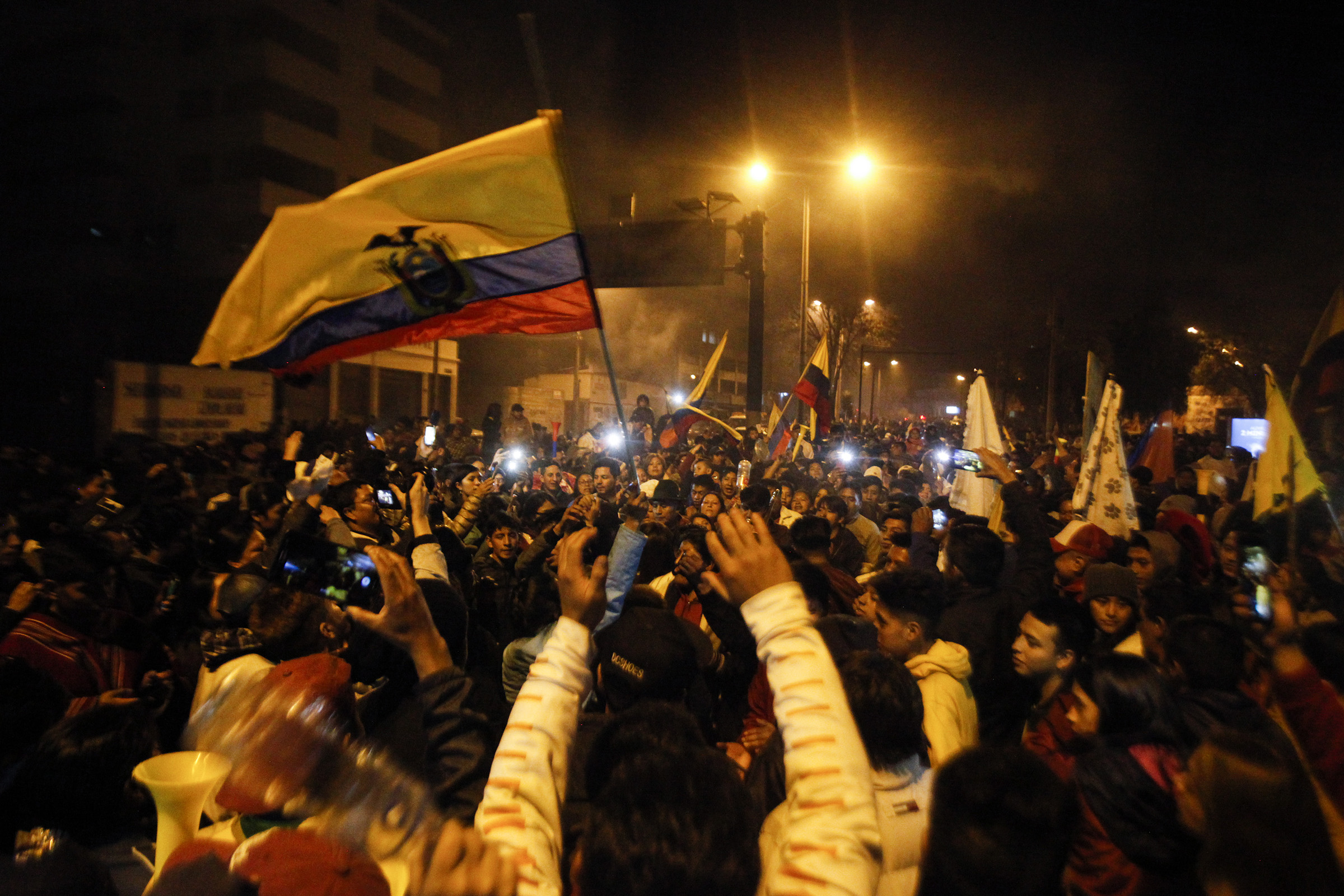
The protestors won this week! No, not those protestors. Or those. Or those. But demonstrators in Ecuador did force president Lenin Moreno to climbdown from his proposed cuts to fuel subsidies, a policy that kicked off protests so violent and wide-ranging that Moreno was forced to relocate his government to the port city of Guayaquil for a few days while the capital burned. But ending the protests was the easy part; the real question for Moreno is what comes next.
What Happened This Week:
Ecuador is an oil-rich country that’s highly reliant on exports, especially when it comes to funding government expenditures (oil accounts for roughly a quarter of all government revenues). But like so many other petrostates in recent years, the tumble in oil prices has made it difficult for Ecuador’s government to make good on its social spending, many of which were instituted by Moreno’s predecessor, Rafael Correa. Correa was a populist leftist leader, an open admirer of Venezuela’s Hugo Chavez, and a vocal critic of the “imperialist” tendencies of the US (it was under Correa that the Ecuadorian embassy in London gave asylum to Julian Assange). Moreno ran as Correa’s successor promising policy continuity, but he broke with Correa once he got into office and pursued more pragmatic economic policies with an eye to attracting more foreign investment into the country.
Ecuador needs those foreign investors, as falling oil prices and a strong US dollar (which Ecuador has been using since 2000) have combined to seriously dent the country’s finances. Moreno has tried to transition Ecuador’s economy towards one more driven by the private sector, but still-high financing needs and increasing borrowing costs forced him to turn to the IMF (as well as the World Bank, the Inter-American Development Bank and the Latin American Development Bank) earlier this year for a combined $10.2 billion program. In order to get that money, Moreno had to promise economic reforms to bring the country’s finances back in order. The government initially planned to raise the country’s value-added tax (VAT), but Moreno instead opted to scrap the country’s 40-year-old fuel subsidy, which he estimated cost government coffers $1.4 billion a year.
While Moreno had a credible case that the fuel subsidies were (and of this week, still are) making corruption and smuggling a lucrative proposition, the public saw it as a policy decision that would hit farmers and those less well-off. Indeed, when the subsidy cut went into effect, low octane gasoline (the kind most widely used) prices skyrocketed and diesel prices doubled almost-instantaneously. Protests erupted, led by transport unions, Correa supporters, and indigenous groups. Indigenous groups are a particularly strong political constituency in the country—their protestors have managed to bring down three Ecuadorian presidents in the last 25 years (in 1997, 2000 and 2005). Demonstrators blocked streets, set fires and seized oil fields, at one point stopping production of more than 10% of the country’s oil output. After 11 days, 1 state emergency declaration, and 8 deaths, 1300+ injuries and 1150+ arrests, Moreno relented and announced he would reinstate the fuel subsidies and convene a committee between the government and indigenous leaders to find alternative economic reforms to implement.
What Happens Next:
That’s the problem—there aren’t really many other economic measures that the Moreno administration can take to raise the necessary government revenues, or cut expenditures, in its weakened political position. Cutting off fuel subsidies was an option of last resort, borne of concerns that they wouldn’t be able to approve a VAT rate hike. Other routes—like slashing public sector wages/jobs or increasing privatizations—are hard in the best of times but non-starters now as elections loom in early 2021. Moreno intends to raise taxes on big corporations and the country’s wealthy, but that will likely only raise around $500 million, and it will be difficult to salvage much savings from trimming some subsidies in the new decree. Given that Moreno actually tried to follow through on his fiscal commitments (and he’s a cooperative country leader in a part of the world that doesn’t produce many of those), the IMF will take a more understanding approach to Ecuador’s program in the near term. But Moreno still needs to deliver a fiscal adjustment to comply with the program. Absent the IMF and its associated financing, it could trigger financial chaos for the country and lead to a political crisis that forces him from office and the country into early elections.
Why It Matters:
Protests of this scale and intensity always deserve attention. But from a broader Latin America perspective, Ecuador is a country trying to move away from leftist politics but struggling to do so, and the recent chaos is probably making Correa’s preferred candidate more competitive in 2021 elections. It’s a story very similar to the one playing out right now in Argentina, and highlights the reality that to enact these kinds of large-scale changes, countries need much more than just market-friendly presidents.
The Key Fact That Explains It:
Political drama is nothing new to Ecuador—in the last 27 years, just two individuals have managed to hold on long enough to complete their 4-year presidential terms.
The One Thing to Say About It at a Dinner Party:
While the IMF may be able to step in to help with immediate financing needs, the economic measures they prescribe often don’t take into sufficient account the public reaction to the measures. And when that happens, politicians either backtrack on the reforms, or are replaced by more populist leaders who will never agree to them in the first place. Call it the Catch-22 of development assistance.
More Must-Reads from TIME
- Cybersecurity Experts Are Sounding the Alarm on DOGE
- Meet the 2025 Women of the Year
- The Harsh Truth About Disability Inclusion
- Why Do More Young Adults Have Cancer?
- Colman Domingo Leads With Radical Love
- How to Get Better at Doing Things Alone
- Michelle Zauner Stares Down the Darkness
Contact us at letters@time.com